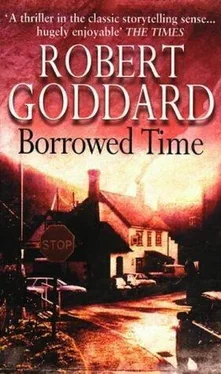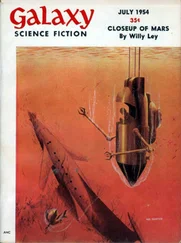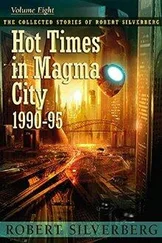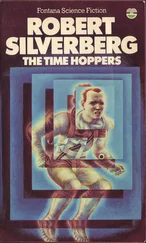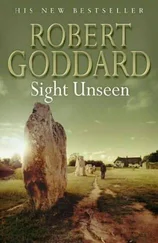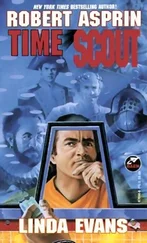Robert Goddard - Borrowed Time
Здесь есть возможность читать онлайн «Robert Goddard - Borrowed Time» весь текст электронной книги совершенно бесплатно (целиком полную версию без сокращений). В некоторых случаях можно слушать аудио, скачать через торрент в формате fb2 и присутствует краткое содержание. Жанр: Триллер, на английском языке. Описание произведения, (предисловие) а так же отзывы посетителей доступны на портале библиотеки ЛибКат.
- Название:Borrowed Time
- Автор:
- Жанр:
- Год:неизвестен
- ISBN:нет данных
- Рейтинг книги:5 / 5. Голосов: 1
-
Избранное:Добавить в избранное
- Отзывы:
-
Ваша оценка:
- 100
- 1
- 2
- 3
- 4
- 5
Borrowed Time: краткое содержание, описание и аннотация
Предлагаем к чтению аннотацию, описание, краткое содержание или предисловие (зависит от того, что написал сам автор книги «Borrowed Time»). Если вы не нашли необходимую информацию о книге — напишите в комментариях, мы постараемся отыскать её.
Borrowed Time — читать онлайн бесплатно полную книгу (весь текст) целиком
Ниже представлен текст книги, разбитый по страницам. Система сохранения места последней прочитанной страницы, позволяет с удобством читать онлайн бесплатно книгу «Borrowed Time», без необходимости каждый раз заново искать на чём Вы остановились. Поставьте закладку, и сможете в любой момент перейти на страницу, на которой закончили чтение.
Интервал:
Закладка:
The Old Parsonage stood so close to the church that the bride and groom’s conveyance there by pony and trap was the shortest of superfluous trots. It was a handsomely gabled house made to seem larger than it was by its lofty setting above the valley. The terraced garden led the eye towards the winding course of the river below and the wooded slopes on its other side: a ruckled blanket of green up which a tide of shadow slowly climbed as the afternoon advanced.
A marquee had been set up at the top of the garden, adjoining the house. Here, as a string quartet played and waitresses dispensed champagne with limitless generosity, I did my best to amuse the guests I shared a table with: the couple who lived next door and their daughter; an old medical colleague of Sir Keith’s; and a cousin of Paul’s who seemed to know him about as well as I did. “Smart and close, our Paul,” he remarked with a frown. “Always has been.”
I exchanged a few words and a kiss with Rowena, a handshake and garbled best wishes with Paul. I suppose I didn’t expect more. My invitation was something of a farewell gesture. I knew that and so did they. My connection with Bella meant there’d probably be the odd fleeting encounter over the years. But nothing more. Paul had become the master of Rowena’s destiny. And I didn’t feature in his plans at all.
This awareness stayed with me throughout the day. It was there when I followed the usher across the church. When I applauded the speeches and toasted the happy couple’s future. When I stood in the crowded lane and cheered them off. And it would still be there, I knew, when I made my solitary journey home. For them, this was a glorious beginning. For me, a solemn end.
“It went well,” Bella said to me as they drove away, letting me see some of the relief she would have hidden from others. She’d done the bulk of the planning and, in a sense, this was as much a celebration of her marriage as Rowena’s. The first full-scale public occasion she’d presided over as Lady Paxton. Its success was a measure of her acceptance. And it had been a success. If anybody had compared her unfavourably with the first Lady Paxton, they’d done so in the privacy of their own thoughts. Bella was safely installed.
I’d always known she would be, of course. Her dress sense might occasionally betray her. Some, for instance, would have said she shouldn’t have been showing so much cleavage at her stepdaughter’s wedding. But that wouldn’t have included any of the male guests. Her joie de vivre was irrepressible. And so was her social ambition. The council-house girl had become what my mother had always said she wasn’t: a lady.
Sir Keith paid her a special tribute in his speech, describing her as “the woman who’s helped me and my daughters recover better than we ever thought we could from the loss we suffered two years ago.” He was equally fulsome in his praise of his new son-in-law. “Paul is a remarkable young man. As strong as he is sensitive. As honest as he is perceptive. Rowena has found herself a fine husband.” He meant it too. The conviction in his voice was unmistakable. Sir Keith Paxton was a man well pleased with the compensations life-and death-had handed him.
And who could blame him? He’d not been married to Bella long enough to see her crueller side. While Paul was the sort of son-in-law fathers dream of. I watched him charming the aunts and chucking the page-boys. I listened to his witty well-ordered speech. I studied him long and hard as he posed with his parents and sisters for yet another photograph. Mr. and Mrs. Bryant were a gauche good-hearted couple, overawed in the company of medical grandees and Cotswold weekenders. But their son wasn’t. Paul Bryant went in awe of nobody. Metropolitan Mutual employed him as a risk analyst and it was easy to see why. Because for him risk spelt no danger. He was in smooth and complete control of his life. And now of Rowena’s too.
The party slowly broke up after the bride and groom’s departure. Some guests left promptly. Others lingered, chatting over tea and coffee in the marquee or strolling in the garden. Bella circulated among them, making new acquaintances and sealing old ones, her energy apparently inexhaustible. Sir Keith too kept up the round, paying me little heed when I said goodbye. “Delighted you could come, Robin. Delighted. It’s been a splendid day, hasn’t it?” He didn’t stay to hear my answer. But he wouldn’t have been disappointed if he had.
I’d not spoken to Sarah all afternoon, so I went in search of her before leaving. A friend of hers I vaguely recognized said she was in the house. I traced her to a small room at the front fitted out as a study, about as far from the party as she could be. There was a woman with her. Tall, fair-haired and elegant, aged somewhere in her forties. I hadn’t noticed her at the top table or close to the centre of the celebrations. But she obviously knew Sarah well. They were talking softly as I entered, almost whispering. And, whatever they were saying, they stopped as soon as they saw me.
“Robin!” said Sarah, jumping up. “How lovely. I was hoping to see you before you left. I’m sorry to have neglected you. But it’s been so hectic.”
“Of course,” I said, smiling. “I quite understand.”
“You’ve been well looked after?”
“Absolutely. Couldn’t have been better.”
“Just what I was saying,” her companion remarked. “I’m Sophie Marsden, by the way.” She rose and stepped towards me, extending a kid-gloved hand.
“Robin Timariot.” I looked at her as we shook, my attention raised now I knew who she was. Louise Paxton’s friend. The one who’d shared her enthusiasm for Expressionist art. And who’d shared a few secrets along the way, perhaps? There was a similarity to Louise. Not in looks so much as manner. A hint of distance. An involuntary implication that much of her mind dwelt on subjects no-one else could understand. It was there in Sophie, albeit more faintly-more impermanently-than it had been in the woman I’d met on Hergest Ridge. But it was there. Like a palm-print. An impression. A dried flower preserved between the pages of a book. No scent. No sap. No life. But stronger than a memory. More than chance likeness or fading recollection. More than could ever be forgotten.
“Sarah’s told me about you, Mr. Timariot. What a help you’ve been to her and Rowena. And to Keith, of course. In introducing him to Bella.”
“Well, I…”
“Louise was a great believer in life, you know. In making the most of it. In casting off past sadnesses. She really would have been pleased at how things have turned out.”
“I… I’m…” I groped for an adequate response. Part of me wanted to echo her sentiment. To draw a neat straight line with Louise Paxton on one side and me incontrovertibly on the other. But another part of me wanted to protest. To rage against a travesty I couldn’t define. To cross the neat straight line. “I’m so glad… to hear a friend of hers say so, Mrs. Marsden.”
“Actually, Robin,” said Sarah, “I was about to take Sophie to see Mummy’s grave. She’s not visited it since the funeral. Rowena’s asked me to put her bouquet on it along with mine. Would you like to come with us?”
“I’d be delighted,” I said. With sudden and utter sincerity.
The graveyard of St. Kenelm’s Church had been full for fifty years or more. Since then, burials had taken place in a small cemetery just outside the village. I drove Sarah and Sophie there at the start of my journey home. Though it was less than a mile from The Old Parsonage, we seemed to have been transported a vast distance from the gabbling gaiety of the wedding party. The cemetery was still and silent, its graves clustered around an avenue of yew trees at one end while the other end stood empty and overgrown, awaiting future use. I didn’t ask why Sir Keith hadn’t come. Why Rowena had felt unable to do this herself. Why Sarah had asked Sophie and me to go with her. Did she, I wondered, regard us as more likely to understand her feelings than her father? Were we the only two she could trust with a share of this experience?
Читать дальшеИнтервал:
Закладка:
Похожие книги на «Borrowed Time»
Представляем Вашему вниманию похожие книги на «Borrowed Time» списком для выбора. Мы отобрали схожую по названию и смыслу литературу в надежде предоставить читателям больше вариантов отыскать новые, интересные, ещё непрочитанные произведения.
Обсуждение, отзывы о книге «Borrowed Time» и просто собственные мнения читателей. Оставьте ваши комментарии, напишите, что Вы думаете о произведении, его смысле или главных героях. Укажите что конкретно понравилось, а что нет, и почему Вы так считаете.
